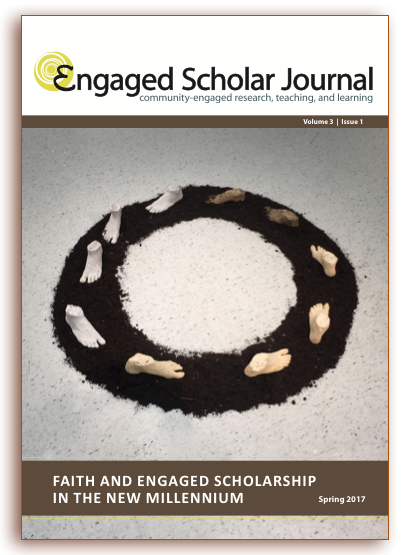Faith and Engaged Scholarship in the New Millennium
DOI:
https://doi.org/10.15402/esj.v1i1.222Abstract
Despite the prominence of the “secularization thesis” among academics prior to the turn of the millennium, religion is not in decline worldwide. The Pew Research Center’s (2015) estimates show that until at least 2050 the number of people practicing a religion is expected to grow globally, particularly in Africa, the Middle East, and southern Asia. Democratic trends mean these regions are likely to remain major sources of immigrants to Western countries (United Nations 2015). These trends will supplement other trends towards growing religiosity in immigrant-receiving countries such as Canada, the United States, New Zealand, and Australia. Given such demographics, this issue is timely. This issue brings a community-engaged perspective into the dialogue concerning how to properly understand the place of faith in contemporary societies (Ager et al. 2015; Bramadat and Biles 2005; Cnaan and Boddie 2006).
Downloads
Published
How to Cite
Issue
Section
License
Authors who publish with this journal agree to the following terms:
- Authors retain copyright and grant the journal right of first publication with the work simultaneously licensed under a Creative Commons Attribution License CC BY 4.0 that allows others to share the work with an acknowledgement of the work's authorship and initial publication in this journal.
- Authors are able to enter separate, additional contractual agreements for the non-exclusive distribution of the journal's published version of the work (e.g., post it to an institutional repository or publish it in a book), with an acknowledgement of its initial publication in this journal.
- Authors are permitted to post their work online (e.g., in an institutional repository or on their website) after the publication of their work in the Engaged Scholar Journal.
- Please note that while every opportunity will be taken to ensure author participation in the editing process, due to time constraints final copyediting changes may be made before publication to ensure APA adherence throughout all submissions.




